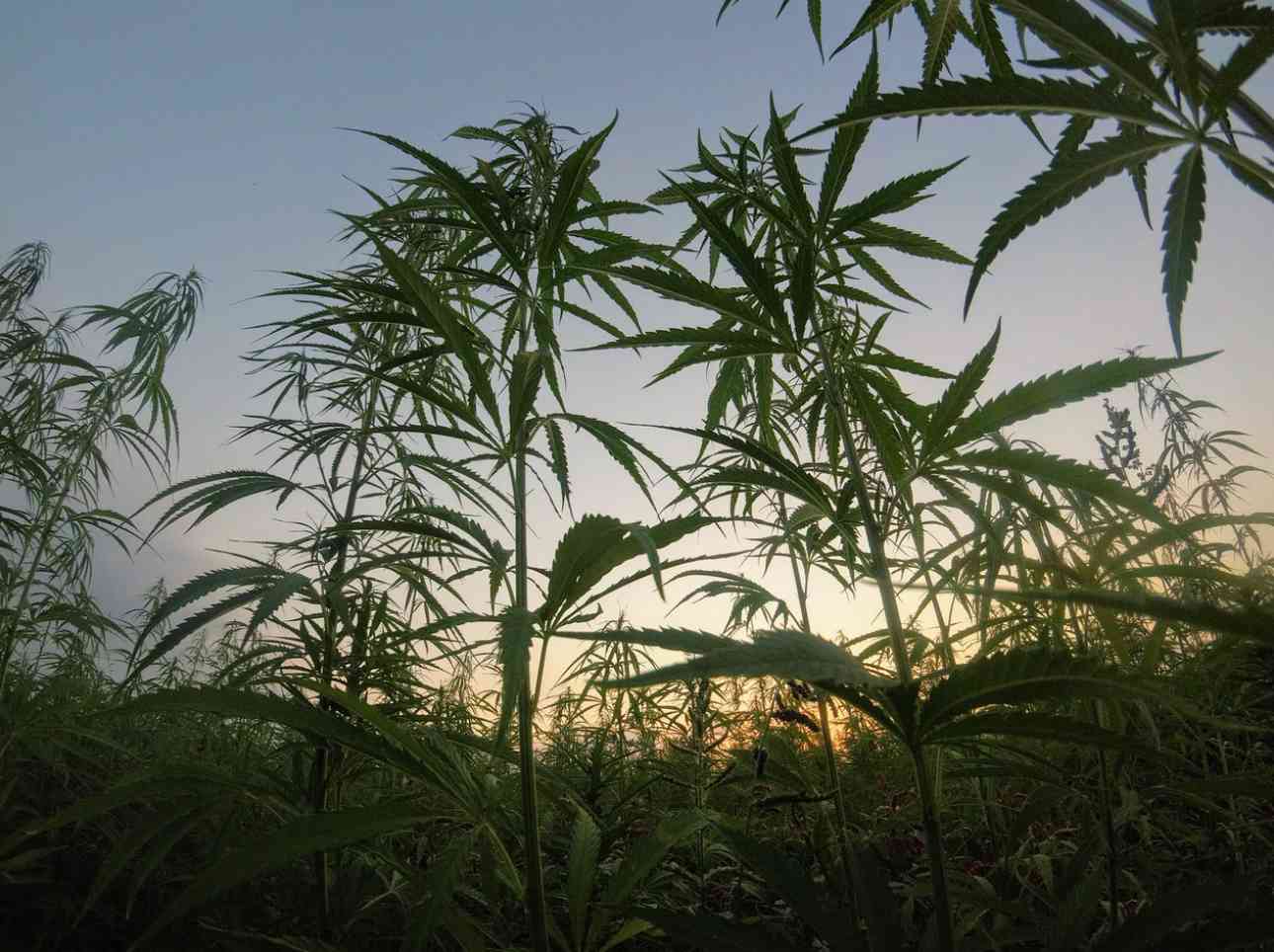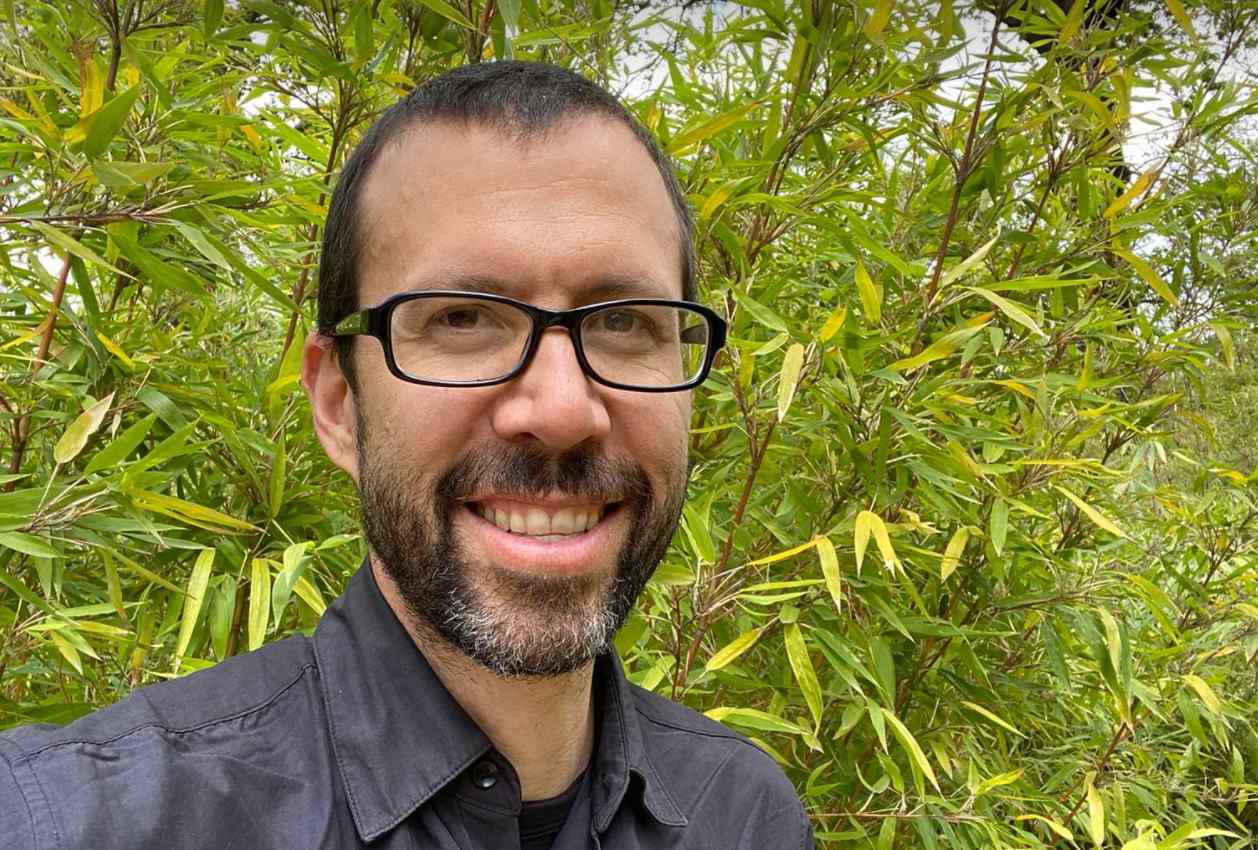After nearly a century of prohibition, new hemp laws are finally sweeping across the nation. In 1937, the federal government passed the Marihuana Tax Act, effectively banning the cultivation and use of both industrial hemp and marijuana.
Highly regulated hemp farming continued on a small scale through World War II, but after the 1950s, American hemp farming disappeared completely. The last hemp cultivation had taken place in the state of Wisconsin.
The first signs of hope came when President Obama signed the 2014 Farm Bill. This piece of legislation acknowledged the potential of industrial hemp as a commercial crop and created a framework for legal cultivation. Following its passage, many states set up pilot programs allowing farmers to grow hemp on a limited, experimental scale.
But things really changed when President Trump signed the Hemp Farming Act in 2018.
What is the Hemp Farming Act?
The federal government passed the Hemp Farming Act of 2018, as part of the 2018 U.S. Farm Bill. The new legislation finally removed industrial hemp from the Schedule 1 controlled substances. By definition, Schedule 1 drugs—including heroin and cocaine—are dangerous, addictive and without medicinal value.
At last, American farmers can grow hemp, or cannabis with less than 0.3% THC, like any other agricultural crop. After more than 80 years, the feds have finally acknowledged what many of us already knew, that hemp is not a drug at all.
See our in-depth article on the Difference between Hemp and Marijuana.
Senate Majority Leader Mitch McConnell introduced the legislation in spring 2018. His home state of Kentucky had already adopted similar rules for hemp, becoming one of the first states to do so.
Since the passage of the Hemp Farming Act, most U.S. states have gone ahead and adopted their own rules concerning the previously controversial crop. A staple of American agriculture is coming back into the fold. And the possibilities for textiles, building materials, biomass and petroleum-free plastics are enormous.
Non-psychoactive hemp is also being recognized for its medicinal benefits. While low in THC, some varieties of hemp produce significant levels of something else called CBD. Although CBD won’t get you high, it is being used widely to treat pain and anxiety and help with sleeping disorders. And with demand for CBD extracts skyrocketing, the interest in hemp cultivation has never been greater.
Where are the best and worst states to grow hemp?
As far as climate and terrain, two of the best states for hemp farming are South Dakota and Nebraska. But unfortunately, lawmakers in those states are moving at a glacial pace to open up this cash crop to their local farmers. Idaho and New Hampshire have also bucked the trend and kept hemp illegal, despite federal law.
Without a doubt, Kentucky leads the nation in hemp farming, research and legislation. Montana and Colorado are also seizing the moment and planting vast acres of hemp on their open plains. Colorado also has some of the most liberal laws on the cultivation and possession of recreational marijuana.
What do the new hemp regulations look like in your state?
Hemp in Alabama
In early 2019, Alabama approved 180 applications from farmers wanting to grow hemp in the state. More than 150 of them went ahead and paid the $1000 permit fee to obtain the state license.
Alabama farmers planted their first hemp crop of the century this spring. They are hopeful that the high demand for (non-psychoactive) CBD oil will make hemp a far more profitable crop that anything else that grows in the region. State regulators will test crops for THC levels and eradicate any cannabis plants that do not comply.
Hemp in Alaska
Alaska passed a pilot program for hemp farming in April 2018. Currently, however, farmers need special permission from the state to plant a field of hemp. In fact, under state law, it’s easier for Alaskans to grow recreational marijuana than industrial hemp. But with the tremendous interest in hemp farming, authorities are working quickly to adopt policies for the commercial crop.
Hemp in Arizona
As of June 1, 2019, farmers in Arizona can legally plant a field of hemp. The Arizona Hemp Program is issuing licenses to about 200 state residents who intend to cultivate the closely regulated crop.
A background check is required, and licenses are good for one year. The Arizona Department of Agriculture has complete details and application forms on its website.
Hemp in Arkansas
The Arkansas State Plant Board has given licenses to four large agricultural companies to cultivate industrial hemp in the state. Policymakers are still trying to iron out the details with federal regulators, while farmers are working closely with companies in Kentucky to obtain seeds for high-quality, low-THC (less than 0.3%) hemp. Additional hemp growers are hoping to obtain licenses as well, pending state approval.
Hemp in California
As of April 2019, the California Department of Food and Agriculture (CDFA) is now issuing applications from farmers wanting a state license to cultivate industrial hemp. However, it will be up to local county officials to review and approve the applications. Several counties continue to restrict or prohibit hemp farming, so it’s not yet clear how it will play out.
NOTE: Looking at which California counties maintain restrictions on hemp cultivation, I have my own theories. Some of those counties include the state’s best-known marijuana producers, Humboldt, Mendocino, and Trinity to name a few. Industrial hemp cultivation could be very disruptive to producing high-grade marijuana, because one strain of Cannabis sativa can easily pollinate the other. So perhaps there is an effort to protect marijuana producers from contamination by hemp pollen.
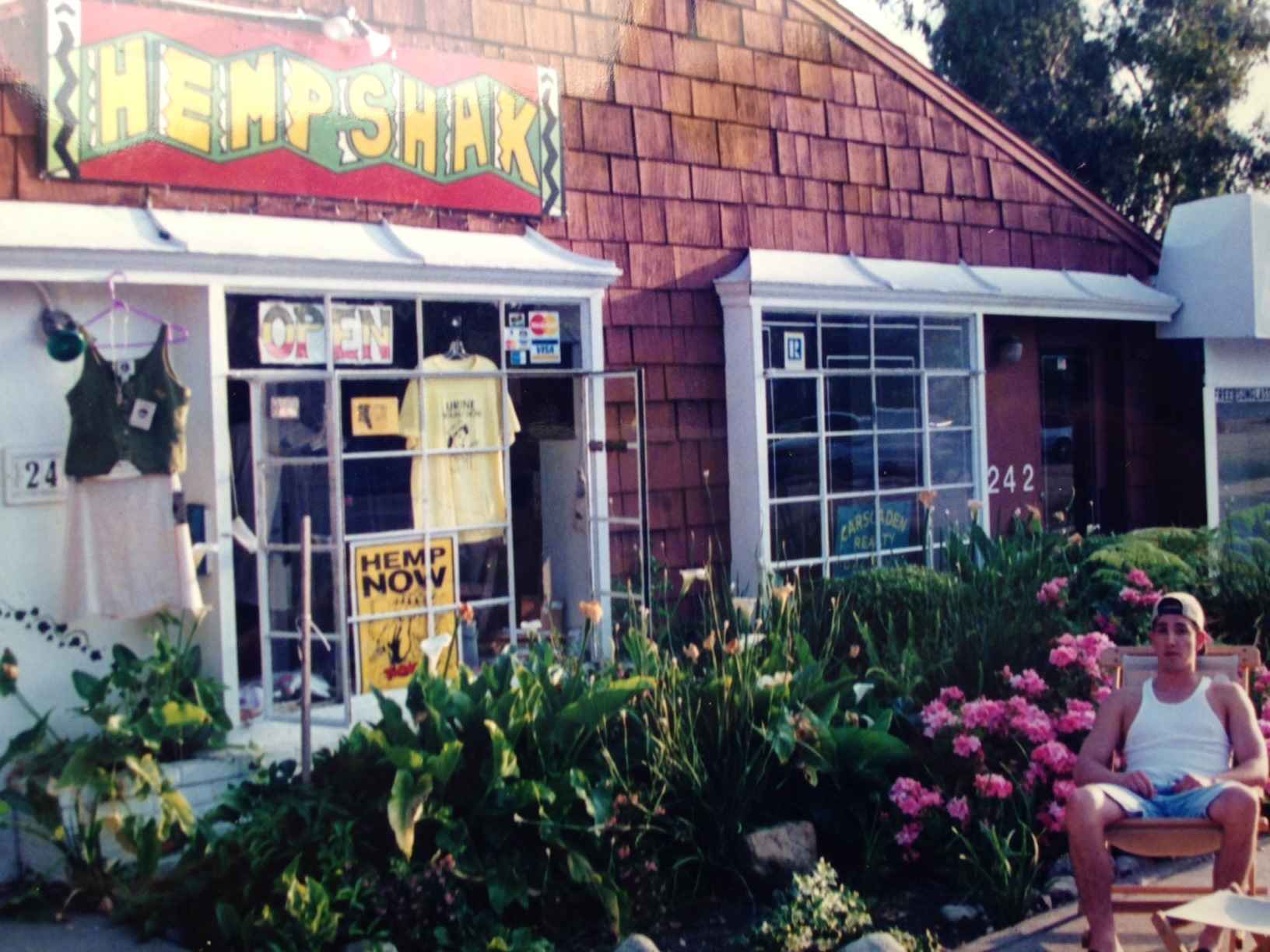
Hemp in Colorado
The Colorado Department of Agriculture’s Industrial Hemp Program regulates the cultivation of industrial hemp. Recreational marijuana, cannabis with more than 0.3% THC, is also legal in the state but separately regulated.
Colorado got a head start when it launched a pilot hemp farming program in 2014 and planted about 1,800 acres of hemp. Today there are more than 30,000 acres of hemp agriculture in the state. And following the U.S. Farm Bill, the numbers are rising quickly.
Most of these hemp farmers are hoping to cash in on the rush for CBD oil. Meanwhile, many small farmers are concerned that industrial-scale hemp farming will drive them out of business.
Hemp in Connecticut
This spring, the state approved a pilot program to allow Connecticut farmers to begin growing hemp. About 200 farmers in the state have expressed an interest. The state is still clarifying the regulations for the production and sale of hemp products with the federal government. They expect to be growing hemp by this summer.
Hemp in Delaware
Delaware launched a pilot program for hemp farmers in 2018, allowing hemp cultivation for research purposes. Delaware currently classifies hemp like a grain. State officials are seeking approval for the USDA to begin farming hemp commercially.
Hemp in Florida
Florida has a pilot program that allows hemp farming for research through two of the state’s public universities, UF and Florida A&M. New legislation passed in May will go into effect in July and allow commercial hemp farming in the state for the first time. Farmers will have to apply to the Florida Department of Agriculture and Consumer Services for a license to cultivate.
Hemp in Georgia
Governor Brian Kemp signed a bill in May to allow hemp cultivation in Georgia. Kemp had earlier signed a bill allowing for medical marijuana in the state. Hemp farmers will be required to obtain a permit through the state and pay a $50 per acre fee to farm the industrial wonder crop.
Hemp in Hawaii
Hawaii launched a pilot program for hemp farming in the Rainbow State last year. Currently, the only legal way to cultivate hemp in Hawaii is under a license from the Hawaii State Department of Agriculture. Licensed growers can obtain seeds from outside the state, pending approval from the HDOA. The state places no restrictions on the processing, manufacturing and sale of industrial hemp products.
Hemp in Idaho
Hemp is still illegal in Idaho, in spite of federal law. A bill that appeared to enjoy unanimous support promised to revise the law, but then died in session. State lawmakers have expressed an intent to get hemp legalized in time for the 2020 growing season.
Hemp in Illinois
Illinois passed its own Industrial Hemp Act last year, and as of spring 2019, farmers can now obtain a state license for cultivation. Just in time for this year’s planting season.
The Illinois Department of Agriculture charges a $100 application fee for each farm. Upon approval, there is an additional license fee of $1,000 for a three-year license, $700 for a two-year license, or $375 for a one-year license.
Hemp in Indiana
Governor Eric Holcomb has just signed a new law into effect which makes commercial hemp farming legal in Indiana. The law, which had unanimous support in the legislature, will go into effect in July. Most plans for hemp cultivation are still for research at this point. Farmers will need to obtain a license from the state in order to comply with the law.
Hemp in Iowa
Governor Kim Reynolds signed a bill in May to make hemp farming legal in Iowa. The Iowa Department of Agriculture and Land Stewardship is continuing to work with the USDA to draft regulations. Farmers hope to be planting hemp in the state next spring.
Hemp in Kansas
This year, the Kansas State Research and Extension began growing industrial hemp as part of an experimental pilot program. Farmers can also apply for a research growing license from the Kansas Department of Agriculture. With more research on the best hemp varieties for Kansas’s growing conditions, new regulations and guidelines will be drafted.
Hemp in Kentucky
Historically the greatest hemp producing state in the country, Kentucky has led the way in revising national hemp policies. According to the State Agriculture Commissioner, Kentucky has issued more than 1000 permits to farmers cultivating over 42,000 acres of hemp in 2019. This is nearly a threefold increase in acreage since 2018.
Growers must have a license from the Kentucky Department of Agriculture (KDA) to farm hemp. The KDA carefully screens all applicants and regularly inspects farms and processing facilities. It is illegal to possess live or unprocessed hemp without a license from the KDA.
Be sure to read the fascinating story about hemp and bamboo in Kentucky.
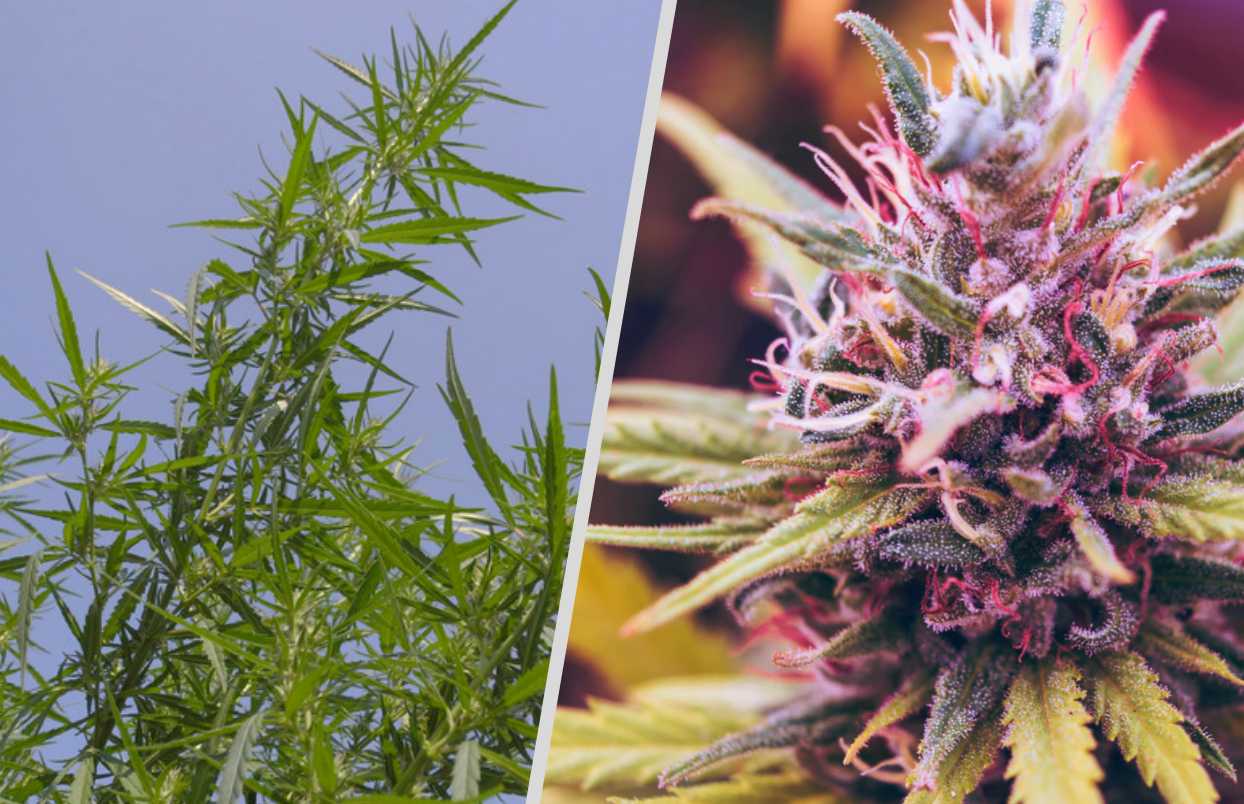
Hemp in Louisiana
The Louisiana Senate approved legislation in June 2019 to legalize hemp production and create regulations for businesses selling CBD products around the state. Specific regulations will be drafted and submitted to the USDA by November 1. State lawmakers describe Louisiana’s hemp program as one of the strictest in the country.
Hemp in Maine
Maine’s Department of Agriculture is currently reviewing applications to grow industrial hemp for the 2019 growing season. A new law, passed earlier this year, recognizes CBD oil as a food product rather than a medicine. Maine farmers who receive a state license will be allowed to cultivate hemp for CBD oil and industrial uses.
Hemp in Maryland
A pilot program through the Maryland Department of Agriculture (MDA) allows farmers in the state to cultivate industrial hemp for research purposes. The MDA will screen all applicants carefully and inspect the growing facilities for compliance.
The state will be updating its hemp regulations this year to comply with new federal laws and expand hemp farming activities.
Hemp in Massachusetts
The Massachusetts Department of Agricultural Resources (MDAR) Hemp Program issues licenses and oversees all industrial hemp production in the state as part of a pilot program. The state issued 13 such licenses in 2018.
Currently, state laws regarding the definition of “agricultural” land do not allow the cultivation of hemp. This means hemp can only be grown on non-agricultural land, which is subject to higher tax rates. Until these laws are amended, commercial hemp farming will not really be economically viable in Massachusetts.
Hemp in Michigan
The Michigan Department of Agriculture and Rural Development has a pilot program allowing eligible farmers to cultivate hemp in the state. Voters approved the Michigan Regulation and Taxation of Marihuana Act in November 2018. Michigan lawmakers are working on legislation to expand hemp farming in compliance with the 2018 U.S. Farm Bill, which passed one month after the state ballot measure.
Currently, farmers must register with the state and obtain a license. The grower registration fee is $100. An additional license to process and handle hemp costs $1,350.
Hemp in Minnesota
Minnesota currently has a pilot program for hemp farmers. Interested growers can apply to the Minnesota Department of Agriculture (MDA) for a permit that is good for one year. State lawmakers are in the process of developing legislation for permanent hemp farming. But until the USDA can review and approve the state proposal, hemp farmers will need a permit through the pilot program.
Hemp in Mississippi
Mississippi voted earlier this year to remove industrial hemp from the state’s list of controlled substances. At this time the state has no policies in place to allow farmers to grow industrial hemp. State legislators are waiting for the U.S. Department of Agriculture to announce specific regulations for hemp production.
Hemp in Missouri
The Missouri Department of Agriculture has issued only two licenses to cultivate and process industrial hemp. Currently, hemp growers are permitted to cultivate up to 40 acres.
Farmers and the general public are now pushing to make hemp growing easier in the state where hemp was once a major staple. The new law, SB 482, has widespread support and would ease restrictions, remove acreage limits, and make it easier for universities to conduct research.
Hemp in Montana
Montana has been one of the most progressive states in terms of industrial hemp legislation. The state recognizes hemp, with less than 0.3% THC, as a commercial crop that any farmer can grow. Last year they cultivated more than 20,000 acres of hemp.
Farmers must apply to the Montana Department of Agriculture for a hemp growing permit. A Conditional Grower license permits farmers to purchase seed and plant it in the ground. Following further review, a Production license allows the farmer to grow, transport and sell hemp.
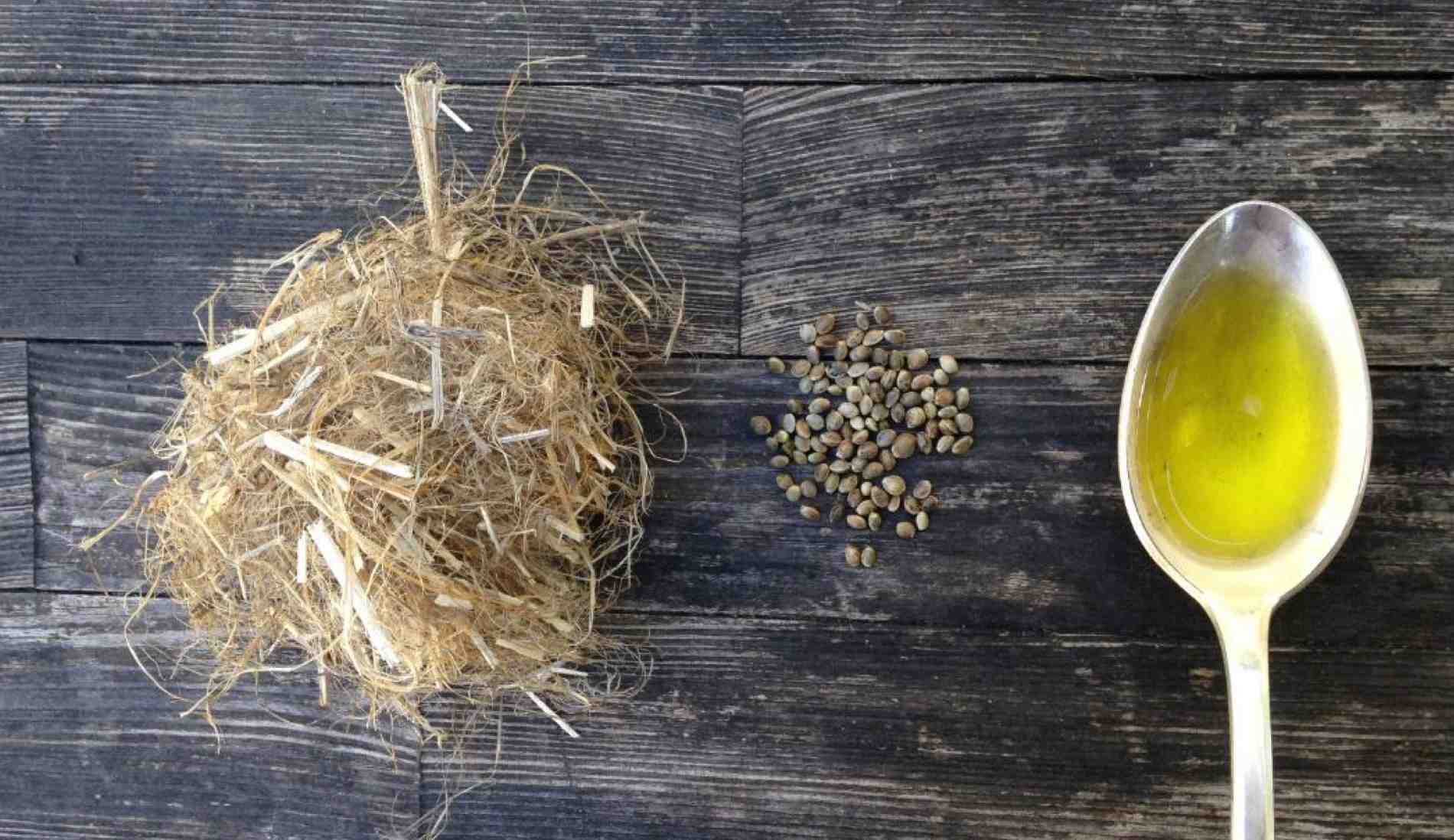
Hemp in Nebraska
The Nebraska Hemp Act is currently under discussion in a state that has the ideal growing conditions for industrial hemp. Anywhere that grows corn is great for hemp. But currently, hemp cultivation is illegal in Nebraska, despite passage of the Federal Hemp Farming Act last year.
Hemp in Nevada
The Nevada Department of Agriculture (NDA) has implemented an Industrial Hemp Program open to eligible farmers in the state. The NDA is currently issuing permits to growers and regulating production and sale of hemp seed, oil and other products. The NDA has not placed a limit on the size of hemp farming areas.
Hemp in New Hampshire
A bill now moving through the New Hampshire State Legislature proposes to legalize industrial hemp, and appears to have broad support. If passed, the new law would effectively put the state policy in line with new federal policy based on the 2018 Farm Bill signed by Donald Trump in December.
As for now, industrial hemp remains illegal in New Hampshire. Governor Sununu has spoken out strongly against marijuana, but has said little on the subject of its fibrous cousin.
Hemp in New Jersey
The so-called Garden State passed a hemp bill last November, one month before the passage of the 2018 US Farm Bill. The New Jersey Department of Agriculture (NJDA) recognizes the legality of hemp as a commercial, industrial crop, but is awaiting more specific guidelines from the USDA. According to its website, the NJDA is giving the issue the “highest priority”.
Hemp in New Mexico
In April, Governor Michelle Lujan Grisham signed into law a new bill that makes hemp production legal in the state of New Mexico. While the Department of Health has been overseeing the production of medical marijuana, the Department of Agriculture is regulating industrial hemp.
So far most hemp farming has been experimental, but the new legislation should widen the playing field. Native American communities will also develop their own regulations and licensing procedures.
Hemp in New York
Following the passage of the Farm Bill last year, the state of New York is expanding its Industrial Hemp Agricultural Research Pilot Program. The NY Department of Agriculture and Markets is encouraging agricultural cooperatives to submit letters of interest to participate in the research pilot program.
Farmers can also apply to grow hemp for seed, fiber and CBD oil. Application forms are available online.
Hemp in North Carolina
North Carolina continues to operate under the Industrial Hemp Pilot Program authorized in 2014. State lawmakers are eagerly awaiting more coherent hemp growing guidelines pursuant to the 2018 Farm Bill.
In the meantime, farmers can apply through the NC Dept. of Agriculture. The initial fee for all license holders is $250. The annual fees are $250 for 49 acres or less, and $500 for 50 acres or more. All license holders are required to pay an additional fee of $2/acre or $2/square foot of greenhouse, whichever is applicable. Licensed growers are subject to inspection and THC testing, which they will also have to pay for.
Hemp in North Dakota
Still waiting for more specific guidelines from the USDA, the state of North Dakota continues to operate its industrial hemp pilot program based on the 2014 rules.
Farmers interested in growing hemp can apply for a permit through the state. Applicants must undergo a background check and be part of an agricultural or academic research program.
Hemp in Ohio
In March the Ohio Senate voted unanimously to legalize the cultivation and production of industrial hemp in the Buckeye State. Ohio law now follows federal law, removing hemp products from the list of controlled substances.
The next step will be to create a licensing program to be regulated by the Ohio Department of Agriculture. Ohio farmers hope to see a program in place by the 2020 planting season.
Hemp in Oklahoma
In April, Governor Kevin Stitt signed legislation establishing guidelines for commercial hemp production in the state of Oklahoma. A pilot program will remain in effect for the remainder of this year.
The department of agriculture expects to see roughly 1,300 acres of hemp planted in 2019, about three times what was planted in 2018. Beginning in 2020, farmers in Oklahoma will move towards full-scale commercial production.
Hemp in Oregon
The Oregon Department of Agriculture (ODA) is developing a program to monitor and regulate industrial hemp production in the state. The ODA issues growing licenses on an annual basis, and interested farmers can visit the website to fill out an application.
Until further notice, the state of Oregon is following the tentative guidelines of the 2018 Farm Bill.
Hemp in Pennsylvania
Pennsylvania has followed the federal government’s move to legalize industrial hemp in 2018. The PA Department of Agriculture has formulated a growing program that includes mandatory permitting and monitoring.
The new program removes much of the cumbersome framework that growers, processors and marketers needed to navigate. Farmers interested in Pennsylvania’s program and the permitting application can visit the PDA website.
Hemp in Rhode Island
No one expects Rhode Island to become the nation’s number one producer of industrial hemp. But the state implemented a pilot program last fall and now has one licensed hemp farmer. A second company has applied for a license to process CBD, so the two could soon find themselves working together. It’s a small world when you’re living in Rhode Island.
Hemp in South Carolina
Prior to the 2018 Farm Bill, South Carolina had a pilot program that licensed only about 40 farmers to grow hemp in the state. In February, the state senate passed a new bill that will lift those tight restrictions and greatly expand hemp farming.
The Dept. of Agriculture will continue to review applications for hemp farmers and put a limit on the acreage of hemp they can plant. But anyone who passes the background check should be able to obtain a hemp growing license in the state.
Hemp in South Dakota
South Dakota legislators passed a bill to legalize industrial hemp earlier this year, but Governor Kristi Noem vetoed the bill and the state Senate was unable to override the veto. Most lawmakers who opposed the legislation expressed concern over not being able to distinguish hemp from marijuana. So South Dakota remains one of a handful of states that have not approved the commercial crop.
Hemp in Tennessee
The Tennessee Department of Agriculture continues to issue licenses through its industrial hemp pilot program. But since the passage of the 2018 US Farm Bill, the state has greatly expanded its hemp cultivation. More than 2,600 Tennessee farmers have licenses to grow hemp this year.
Interested farmers can apply for a license from the state. All growers are required to have a license, but hemp processors are not.
Hemp in Texas
House Bill 1325 proposes to make industrial hemp and hemp-derived extracts legal in the Lone Star State. The bill appears to have broad support in both chambers of government, but the Texas lawmakers seem to be dragging their feet on the issue. Currently, there is no pilot program for hemp farming of any kind in the state.
Hemp in Utah
In December 2018, Utah legalized industrial hemp and possession of the hemp extract CBD. Utah residents no longer need a registration card from the department of health to possess CBD oil. But those interested in cultivating hemp will need a license from the department of agriculture.
Applications for hemp growing licenses are available at the Utah Dept. of Agriculture website. Utah State University is currently conducting extensive research to determine the optimal strain of cannabis with the highest levels of CBD but less than 0.3% THC.
Hemp in Vermont
The Vermont Agency of Agriculture, Food and Markets (AAFM) recognizes hemp with less than 0.3% THC as an agricultural product. The agency is currently establishing guidelines to regulate the cultivation, production and sale of hemp and hemp related products in the state. These rules will also address standards and expectations for record keeping, reporting, testing, and labeling, and include enforcement provisions as outlined by both state and federal law.
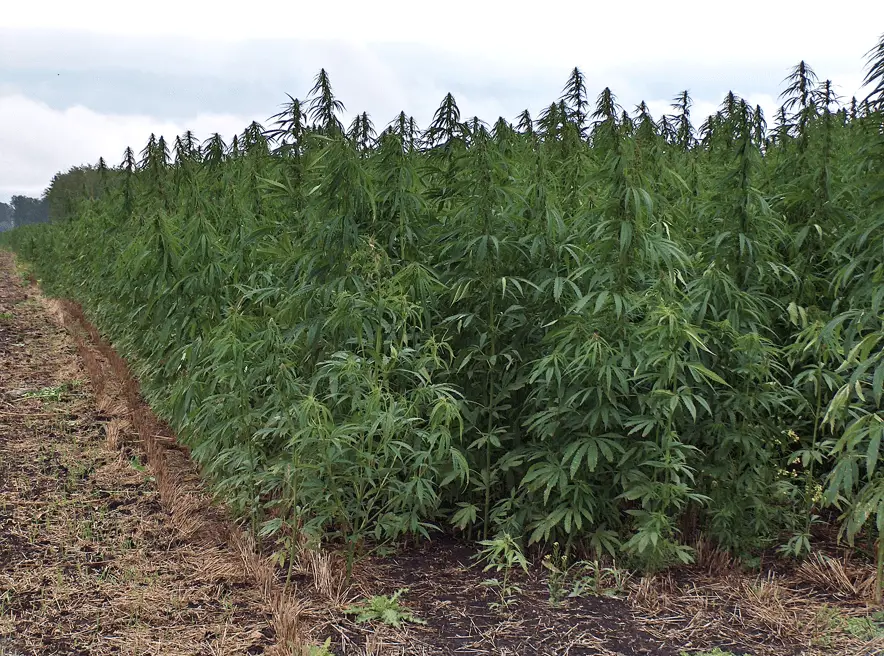
Hemp in Virginia
As of March 2019, changes to the Virginia Industrial Hemp Law have removed the restriction that hemp only be grown for research purposes. Registered growers can now cultivate hemp commercially in the Commonwealth of Virginia.
Applications and complete details concerning the Industrial Hemp Grower Registration are available on Virginia’s government website. There is an application fee of $50.
Hemp in Washington
Prior to 2018, Washington State had a pilot program for hemp farmers, consistent with the 2014 Farm Bill. With the passage of the 2018 U.S. Farm Bill, that state now accepts hemp as a legal, commercial crop.
The Washington Department of Agriculture (WSDA) will continue to issue permits to hemp growers. But there will no longer be a research element requirement. The WSDA is in the process of establishing new guidelines that will comply with the latest federal statutes.
Hemp in West Virginia
West Virginia’s Industrial Hemp Development Act authorizes hemp as a commercial, agricultural product, while recognizing the need to strictly regulate marijuana with more than 0.3% THC.
Individuals can apply to the state for a commercial hemp growing license. Applicants must submit to a background check and clearly describe the area they intend to cultivate. Universities and institutes of higher learning can also obtain hemp-growing licenses for research purposes.
Hemp in Wisconsin
The Wisconsin Department of Agriculture, Trade and Consumer Protection (DATCP) continues to run a hemp farming pilot program based on 2014 federal law.
Since the passage of the 2018 Farm Bill, interest in the program has blossomed. More than 2000 individuals and businesses applied for hemp growing and processing permits for 2019. In 2018, the DATCP issued a total of 247 grower licenses and 100 processor licenses.
Hemp in Wyoming
At the bottom of the list, alphabetically if not politically, Wyoming remains one of the last states to lift its prohibition against hemp farming. Situated between Colorado and Montana, two of America’s largest hemp producers, Wyoming is in a perfect position to launch a competitive hemp program.
With the passage of HB171 in March, Wyoming lawmakers are now establishing new policies to get the hemp industry off the ground. The state plans to start issuing hemp farming permits in accordance with USDA regulations, but not in time for the 2019 planting season.

